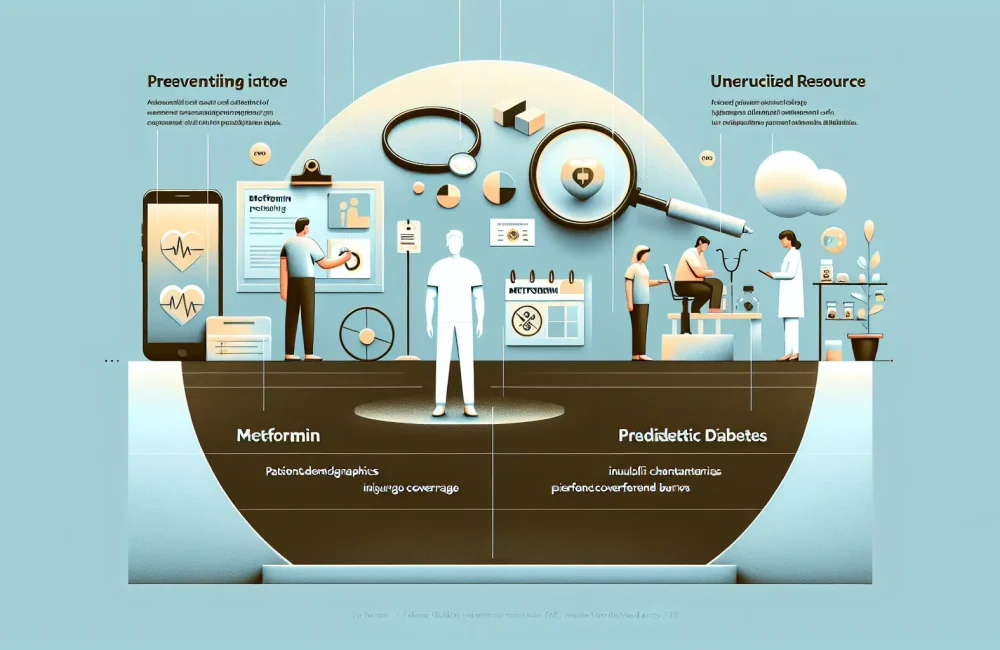By CAFMI AI From New England Journal of Medicine
Efficacy of Maridebart Cafraglutide in Weight Reduction
Obesity remains a major chronic health challenge in the United States, contributing significantly to comorbidities such as type 2 diabetes, cardiovascular disease, and metabolic syndrome. Effective therapeutic options beyond lifestyle modification are urgently needed to address this epidemic. The recent phase 2 trial of maridebart cafraglutide, a once-monthly glucagon-like peptide-1 (GLP-1) receptor agonist, shows promise as a novel pharmacologic approach for obesity treatment. This randomized, double-blind, placebo-controlled study enrolled 600 adults who were classified as obese or overweight with at least one comorbidity related to excess weight. Participants received monthly subcutaneous injections of varying doses of maridebart cafraglutide or placebo over a 24-week period. The primary outcome—percentage change in body weight from baseline to week 24—demonstrated statistically significant results; all maridebart cafraglutide dose groups experienced substantial weight loss relative to placebo. The highest dosage cohort achieved an impressive mean weight reduction exceeding 15%, a magnitude comparable to or exceeding currently available agents targeting obesity. These data highlight maridebart cafraglutide’s potential to facilitate meaningful weight loss in clinical practice, filling a critical gap in treatment for patients who struggle with conventional methods alone.
Metabolic Benefits and Safety Profile of Maridebart Cafraglutide
Beyond weight loss, maridebart cafraglutide produced noteworthy improvements in several metabolic risk factors commonly encountered in obesity. Waist circumference, an established marker of central adiposity and cardiovascular risk, decreased significantly in treatment groups compared to placebo, indicating beneficial shifts in fat distribution. Glycemic control improved as evidenced by reductions in HbA1c levels, which holds particular importance for patients with prediabetes or type 2 diabetes, conditions frequently coexisting with obesity. Favorable changes were also seen in lipid profiles, including reductions in LDL cholesterol and triglycerides that may confer added cardiovascular protection. These metabolic advantages underscore the drug’s holistic impact on obesity-associated health risks. Importantly, the safety assessment revealed a tolerable adverse event profile, dominated by mild to moderate gastrointestinal symptoms such as nausea and diarrhea, commonly observed with GLP-1 receptor agonists. No unexpected safety signals or severe adverse effects emerged during the study, supporting the agent’s potential for long-term use in outpatient settings. Ongoing vigilance and monitoring remain essential in clinical settings to mitigate GI side effects and optimize patient adherence.
Future Directions and Clinical Implications of Maridebart Cafraglutide
Looking ahead, maridebart cafraglutide may redefine standards of care for obesity management if subsequent phase 3 trials confirm its efficacy and safety. Its once-monthly dosing schedule could improve patient adherence compared to daily or weekly regimens, enhancing real-world effectiveness. Researchers are also exploring its potential use in populations with obesity-related complications such as non-alcoholic fatty liver disease and cardiovascular disease to further expand therapeutic benefits. Cost-effectiveness analyses and long-term safety surveillance will be crucial in assessing its viability for broad clinical adoption. Ultimately, maridebart cafraglutide represents an exciting advancement with the potential to transform treatment paradigms and improve outcomes for millions affected by obesity worldwide.
Read The Original Publication Here






